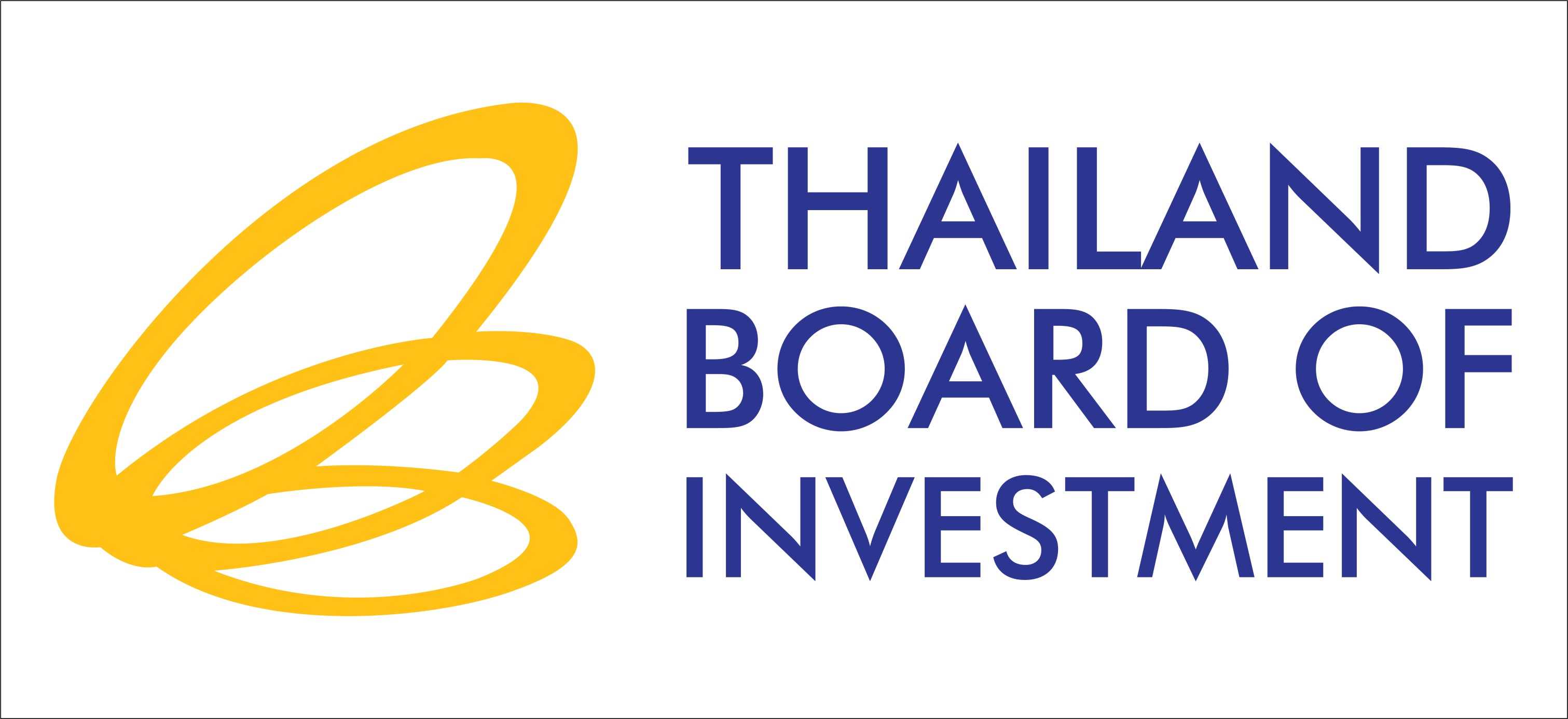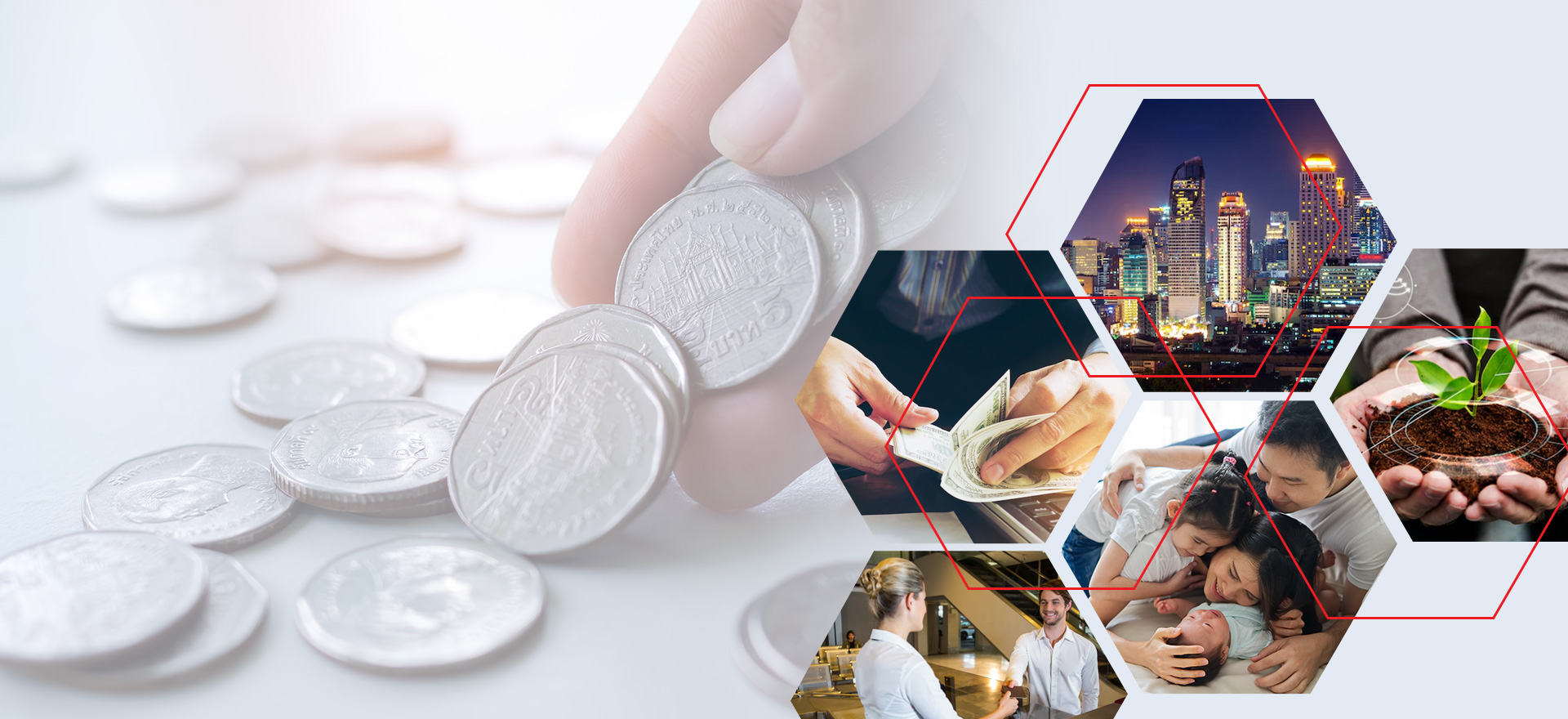Roi Jai Rak Project: Alternative for Happy Life and Economic Prosperity
Roi Jai Rak Project: Alternative for Happy Life and Economic Prosperity
Report: Chatrudee Theparat
Roi Jai Rak Project: Alternative for Happy Life and Economic Prosperity
Mae Fah Luang Foundation has moved “Roi Jai Rak Project” ahead strongly by utilizing the “Royal Project” to promote a quality of life of villagers in remote areas in Chiang Mai province, a way to help solve the drug trafficking and curb poverty.
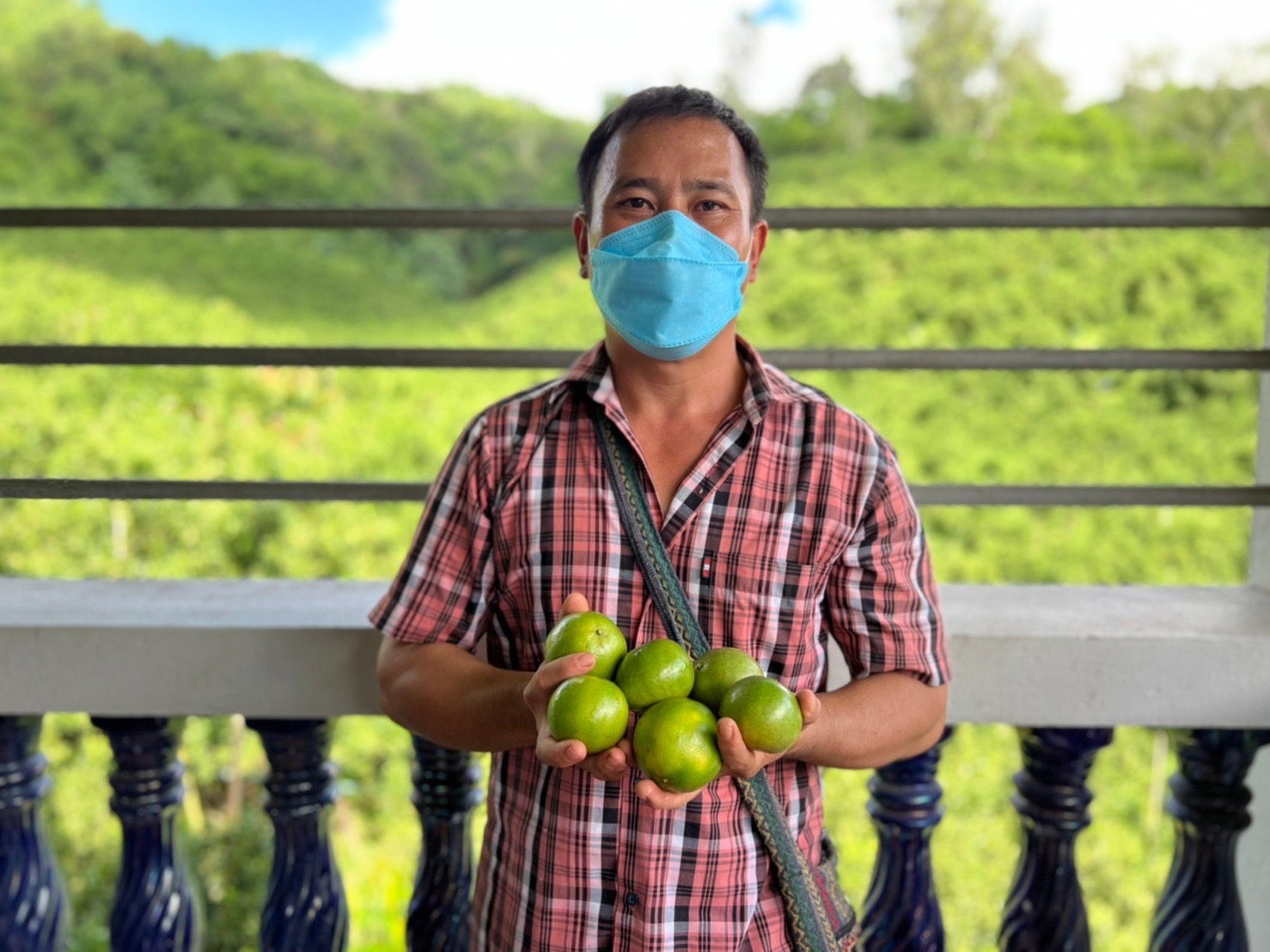
Mr Somboon Sangchan, the owner of orange orchard in Ban Muang Nham Neua
Mr. Somboon Sangchan is one of villagers to see an opportunity through the project. He, 43, decided immediately not to involve with any kind of drug-trafficking activities when the Mae Fa Luang Foundation (MFLF) launched Roi Jai Rak Project in his village area. What he did is he has gradually followed the project’s guidance by growing orange and mango in his own orchard to make new source of income to look after his family. Finally, his attempt turned fruitful.
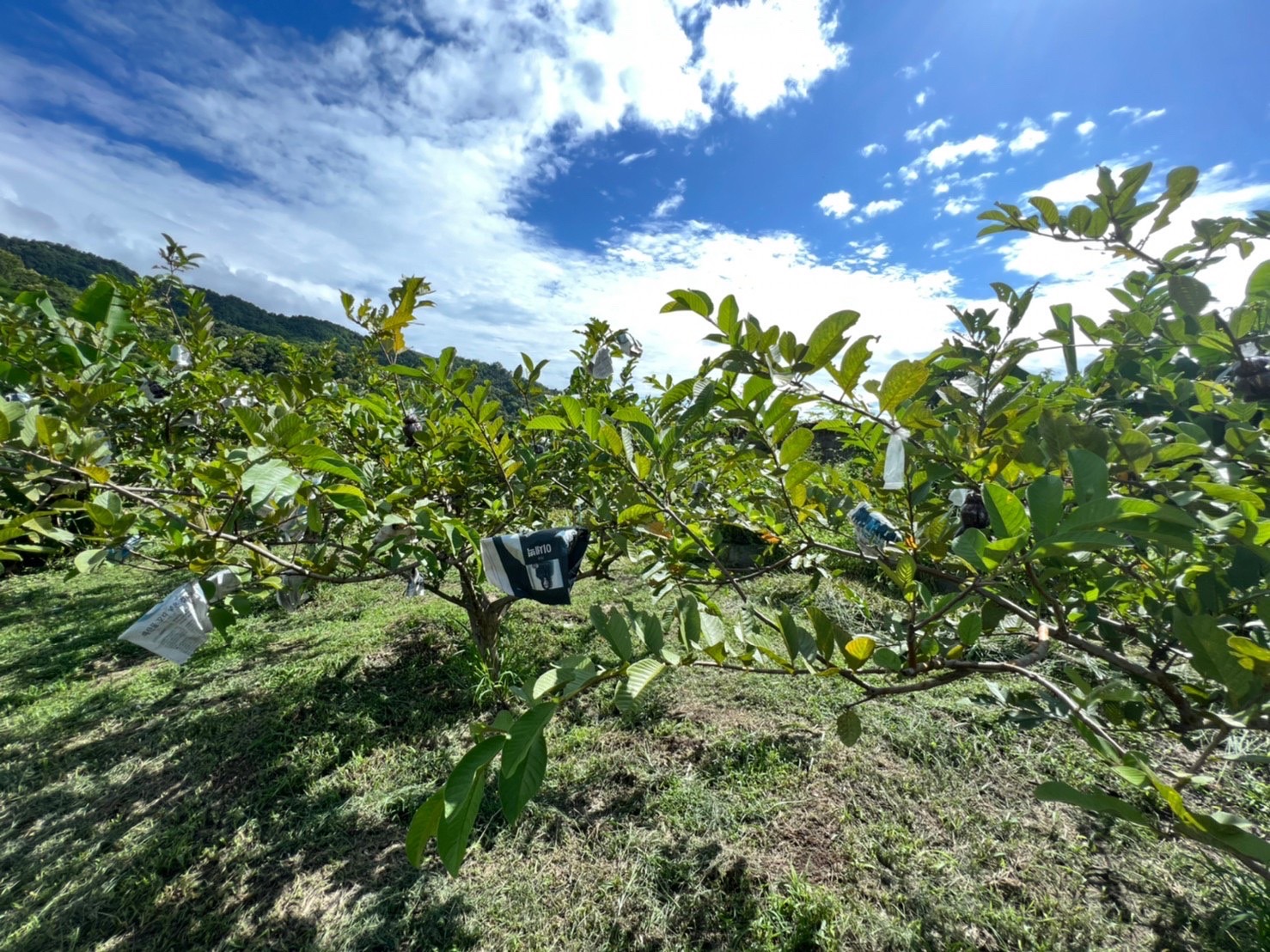
Orange orchards of community business in Ban Muang Nham Neua
However, he is not alone. Under the project, it covers four villages including Ban Huay San, Ban Muang Nham Neua, Ban Hua Muang Ngam and Ban Muang Nham Tai, as well as 20 villages in Tha Ton Sub-district, Mai Ai District. Its aim is to give an alternative to do farming on their existing lands to produce stable income to prevent them from involving the drug trafficking.
“I decided to grow fruit. Let’s imagine that how terrible our next generation will meet if I still stay on the illicit drug cycle. Without the right and clear path, they might return to the same cycle,” he said.
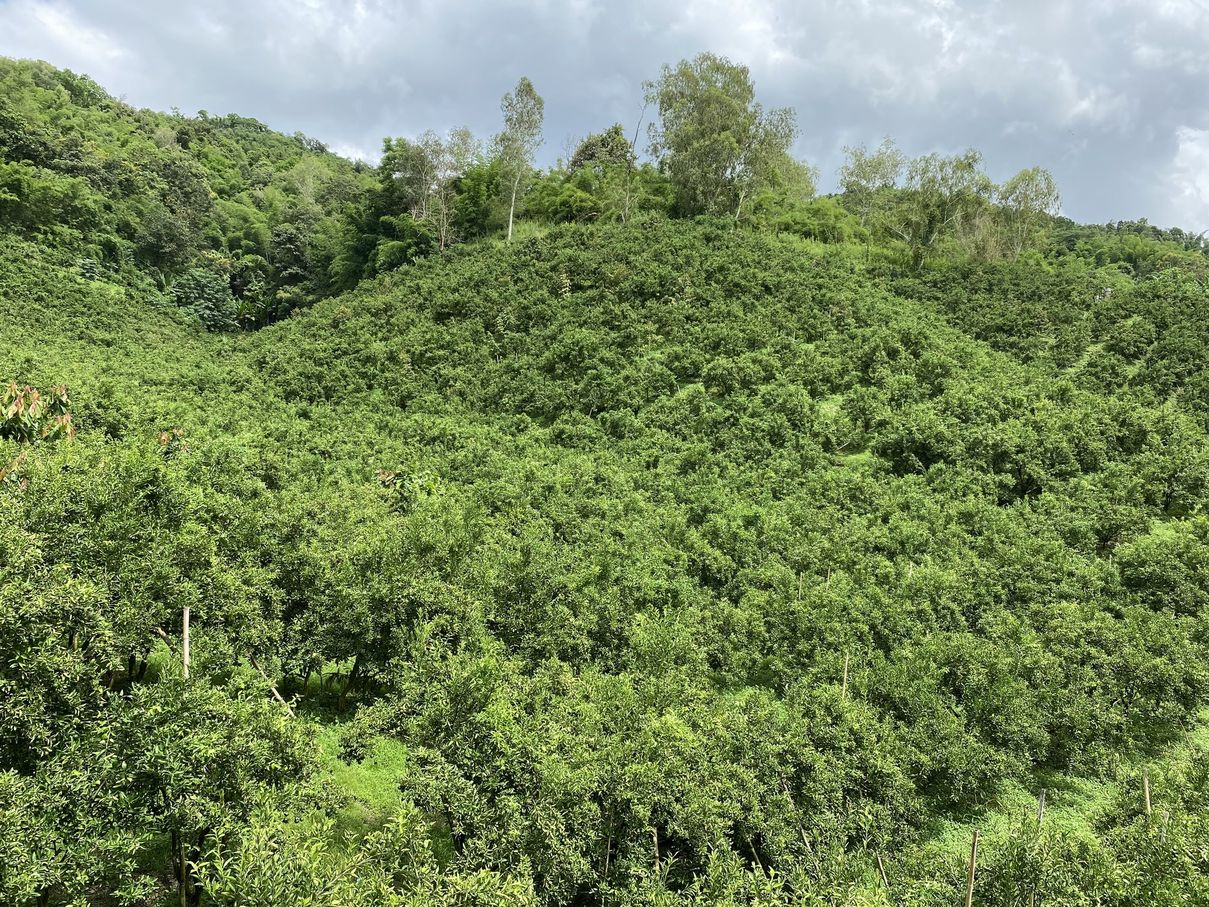
Currently, his orange orchard on 25 rai of land is in Ban Muang Ngam Neua. After gaining a satisfactory success, he established a business community to encourage the village to grow more quality fruit. The interest has grown, with seven families to add, putting the total land to 150 rai.
“This location was ever a red zone or drug zone which was at risks and offers no opportunity for us to raise families. Later when MFLF launched the project and supported the marketing activities further, I found a clear solution to our descendants for their better opportunity in the future.”
Currently, his business community has become even bigger with 117 members, covering 8,600 rai to grow quality fruit. The crop has offered them a better income like mango for export to Japan and orange for domestic market and export to Japan and South Korea. His business community earned a record income of 4.8 million baht annually from selling orange alone.
“I feel very happy to share knowledge and my experience to new farmers who want to manage the farm in the right direction.”
%20explained%20on%20a%20technology%20to%20improve%20guave%20quality%20to%20ML%20Dispanadda%20Diskul%2C%20Chief%20executive%20of%20Mae%20Fah%20Luang%20Foundation.%20(right).jpg)
Mr Somdej Habhuhet, guava grower(left) explained on a technology to improve guava quality to ML Dispanadda Diskul,chief executive of Mae Fah Luang Foundation.(right)
Mr. Somdej Habhuhet, 50, started to grow guava four years ago with 200 guava trees. It was sold only 15 baht per kilograms. But later he decided to grow more quality guava and earned more income because the fruit was sold at 30-35 baht per kg. Now he is happy because he has earned 70,000 baht per crop, with three times a year. In addition, he played a supportive role in setting up a group of guava farmers, and currently there are 24 members to join to grow and sell it domestically.
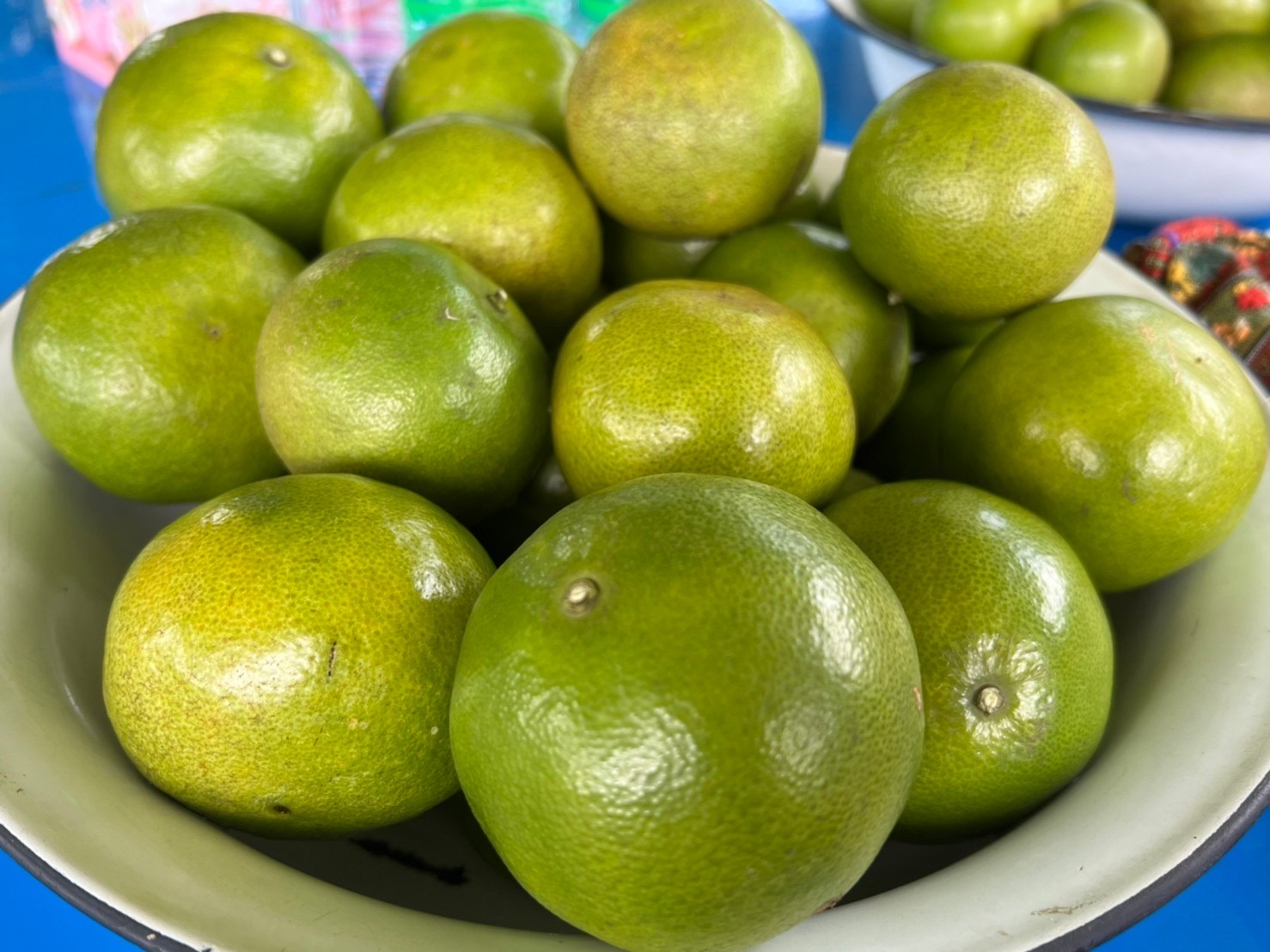
Roi Jai Rak project was launched on November 15, 2017 when MFLF was approached by the Office of the Narcotics Control Board (ONBC) to partner in narcotics mitigation project by providing opportunities and alternatives for a legitimate livelihood among four communities with emphasis on addressing poverty, disparity and lack of opportunity covering 1,132 families with 4,796 population.
The project was implemented after former Kuomintang fighter Lao Ta Saenlee were caught in 2016. Lao Ta was sentenced to life imprisonment and his son was sentenced to death by the Criminal Court on December 13, 2017 due to involvement in drug trade.
Roi Jai Rak project has grown further through various economic activities to create stable income for the community, incentivize them to conduct legitimate livelihood, with the long term goal being to create a model sustainable narcotics mitigation program in urban area.
Her Royal Highness Princess Bajrakitiyabha Narendira Debyavati made visits several times to the project. The first time was on 18 October 2018, she observed the activities of the “Asa Tham Dee” (volunteer for good) group or drug rehabilitation volunteer group. The second was on November 20, 2018, she discussed on the establishment of a drug rehabilitation centre in the project and followed the progress of the project as the third time on July 3, 2019. And the latest visit was on January 5, 2022. The “Asa Thamdee” was held eight classes to train 460 villagers.
Under the Roi Jai Rak project, the building water supply system was first implemented by the villagers, who contributed their energy for construction. There were 2,684 people or accounted 62% of the total in the project got benefits from the water distribution system for consumption and farm areas. The project has supported the villagers to grow plants and fruit like rice, durian, grapefruit, lychee, orange, maize, coffee, avocado, sweet potato, and chrysanthemum.
Farm products could generate 180,624 baht in average per family in 2021. Compared to the drug trafficking, however, the amount was still far below from its 800 million estimated per year where they from four areas to be involved.
ML Dispanadda Diskul, chief executive of MFLF said the development path has utilized both Royal Initiative and Doi Tung development plan. In the first step, the project will be implemented for 12 years between 2018 and 2029. The next step of development will be focused on high value farm products, processing and tourism development, as well as life quality development and upgrade education.
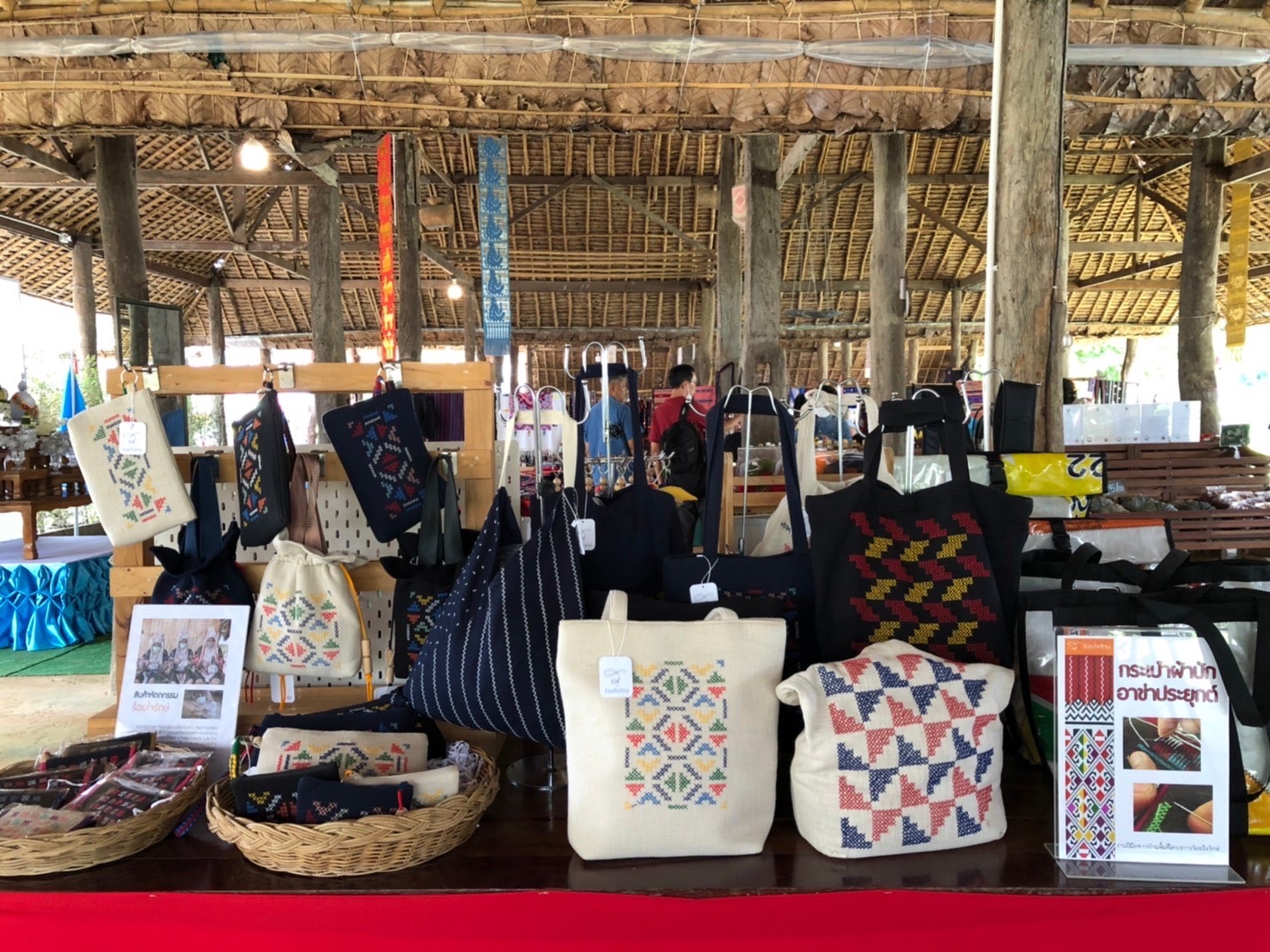
Handicraft products of Roi Jai Rak Project.
17 September 2022
Viewed 430 time
 EN
EN 

